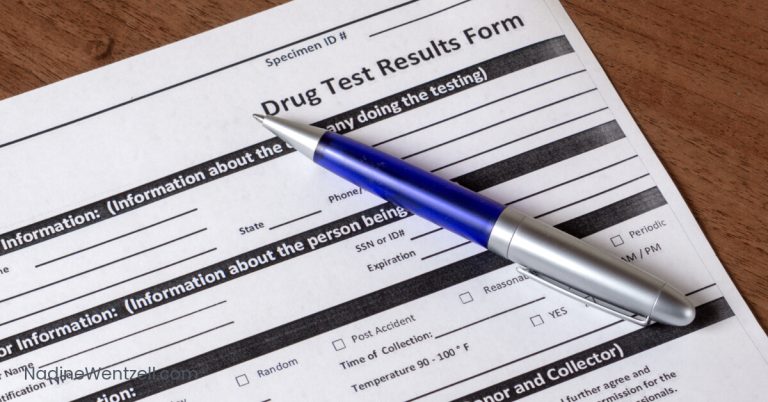Articles
Why Once-and-Done Does Not Work: Build a Continuous Learning Culture Around Substance Use and Safety
Many organizations still treat drug and alcohol training as a requirement to be completed, checked off, and revisited next year… maybe. It shows up on a training calendar, everyone attends, … Read more
Workplace Safety’s Missing Link: Training for Fairness and Compassion in Response to Substance Use
When we think about workplace safety, our minds often jump to hard hats, harnesses, and hazard prevention. But there’s another kind of safety that deserves equal attention: the psychological and … Read more
What Really Happens After a Positive Drug Test? Streamlining the MRO Process for Employers
When an employee’s lab test returns a positive result, employers often find themselves navigating a confusing and sometimes inefficient process. At the heart of this is the role of the … Read more
Rethinking Impairment: What Employers Need to Know Now
Over the past several months, we’ve unpacked one of the most misunderstood concepts in workplace safety: impairment. While the term is used often in policies, legal language, and HR conversations, … Read more
Why the “Standard” Drug Testing Panel Isn’t Enough
Many organizations still use the US DOT (Department of Transportation) 5-panel drug test. It’s familiar and referenced in many policies, but is it enough? Not anymore. Limiting your panel to … Read more
Substance Use, Safety, and the Employer’s Role: What Really Matters
Substance use in the workplace is a complex issue, one that goes far beyond testing or identifying who used what and when. At its core, it is about safety and … Read more
What Is a Substance Use Expert and Why You Need One
In my work with safety-sensitive industries, I often hear the same questions when substance use becomes a workplace concern: “What happens next?” “How do we ensure fairness?” “Is this a … Read more
Can We Objectively Measure Safety Risk? Why Testing Alone Isn’t Enough
As workplaces continue to evolve their substance use policies, one recurring question is this: Can safety risk really be measured objectively? It’s a fair question and one that doesn’t have … Read more
Why Medical Review Officers Matter
When we talk about fostering safe workplaces and healthy people, it’s easy to focus on policies, training, and testing. But behind the scenes, there’s a critical player ensuring those drug … Read more
Perception vs. Reality: How Views on Substance Use Complicate Workplace Safety
As cannabis use becomes more normalized and socially accepted, employers face a growing challenge: how to balance shifting cultural attitudes with the ongoing need to maintain a safe work environment. … Read more
Understanding Safety Risk: It’s More Complicated Than You Think
Workplace safety is a top priority, yet many employers still struggle with how to address substance use in a way that is practical, fair, and legally sound. The issue is … Read more
Impairment: The Most Misunderstood Word in Workplace Safety
As a workplace substance use consultant, I’ve seen firsthand how society often oversimplifies “impairment” as a clear state of incapacity. But the reality is far more complex. Every one of … Read more
Navigating Substance Use Policies During Holiday Gatherings
With the holidays upon us, many companies are planning gatherings to celebrate. It’s a time for connection and relaxation and also an important moment to consider best practices around social … Read more
Medical Cannabis in the Workplace: A Proven Model for Balancing Safety and Employee Rights
As cannabis legalization continues to expand globally, many employers are faced with the challenge of managing its use within their workplaces. Here in Canada, where cannabis has been legalized since … Read more
Managing Substance Use Disorder & the Return to Work Process
Managing Substance Use Disorder (SUD) in the workplace is a multifaceted challenge that requires careful consideration of both the employee’s well-being and the organization’s operational needs. Returning to work after … Read more
The Cannabis Conundrum: Getting Employer Buy-in for Oral Fluid Testing to Protect Safety
As cannabis legalization spreads, ensuring workplace safety becomes increasingly complex. The normalization of cannabis use has brought about challenges in maintaining a safe and productive work environment. One effective approach … Read more
The Uniqueness of Drug and Alcohol Testing in Canada vs the US
Yes, We Do Things Differently “Up North” What follows are some of the key areas where testing in Canada differs from the US. Of note, the information provided here is … Read more
Fit for Duty, Substance Use in the Workplace – Safety Services NB Podcast
Safety Services New Brunswick welcomes Nadine Wentzell back for a follow-up discussion on substance use and addictions in the workplace, with a focus on “fit for duty.”
Tips for Talking with an Employee about Addiction
Addiction affects a minimum of 10% of the population. It’s an expensive problem that can dramatically impact your bottom line. Are you worried about your employees’ safety? Managing addictions is vital to minimizing … Read more
Emerging Trends in Substance Use: Implications for Workplace Policies
In the constantly evolving landscape of substance use, it’s crucial for employers to stay ahead of trends, particularly with the ever-evolving prescription drug abuse and the emergence of new psychoactive … Read more
The Trouble With Not Knowing: When Substance Use Becomes an Addiction
My primary role as a Workplace Drug, Alcohol and Cannabis Consultant is to educate. One of the key areas of this focus is to help people understand that addiction is … Read more
Substance Use & Addictions in the Workplace – Safety Services NB Podcast
Hosted by Safety Services NB, tune in to learn about substance use & addictions in the workplace, testing, health care, and employer rights & responsibilities.
Substance Use & Addictions in the Workplace – Safety Services NB Podcast
Tune in to hear Nadine discuss substance use & addictions in the workplace, testing, health care, and employer rights & responsibilities.




















